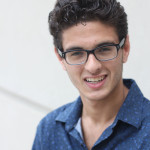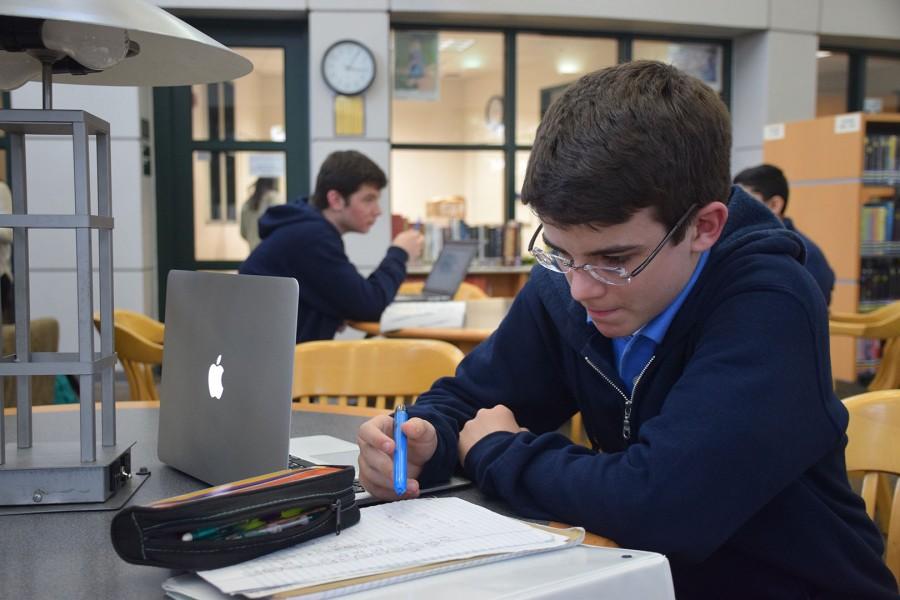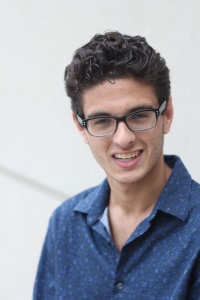I remember the day as if it were yesterday. As the hot summer sun shone bright, I finished a brief,concise monologue. Suddenly, a bucket full of ice water was poured on my head. Even though this might seem like a rare circumstance, I wasn’t alone.
Over the last three months, millions of Americans participated in the ALS Ice Bucket Challenge, a fundraising technique devised to funnel money into the research of Lou Gherig’s disease.
In brevity, the technique worked. Thanks to a somewhat silly video, funding for the research of this illness has increased donations by over $15.6 million. Truly, that video changed the world for the better.
However, the aggressive expansion of the Al Qaeda-offshoot, ISAS, brought on a new meaning to videos.
As they showed James Foley and Steven Sotloff being brutally murdered by their blind hatred, we realized that a video, as well, could change the world for the worse.
While the videos were circulated on the internet, shock and disbelief intensified at the utter rejection of basic human dignity. This did not seem like reality. Unfortunately, it was.
By killing a journalist, the Islamic State (ISAS) is pushing forth a sick vision of censorship. A version that doesn’t persecute for what they publish, but for what values they stand for.
Censorship, in the most basic sense, is the suppression of “unacceptable” material. Indeed, the challenge is defining what should be deemed “unacceptable” and what should be considered “acceptable.”
Much like a video, censorship can be used for good or evil.
There are some forms of censorship that are completely justified. For example, the material The Voice produces undergoes some regulations through the administration.
Upper School Principal and Assistant to the Headmaster Dennis Herron stated that flexible, fair censorship is important in keeping a positive image of our school.
“If we allowed The Voice to publish anything, we could generate a negative view of our school in terms of having adequate appropriateness and balanced opinions,” Herron said.
By having sincere censorship measures, the administration helps create a newspaper that all Saints can enjoy and that people with different political views can read.
Also, the thespians have to face some restrictions. Head of the Fine Arts Department Janine Papin states that censorship doesn’t even have to be enforced since regulations are easy to comply with.
“We use common sense and pick shows that are appropriate for the students,” Papin said.
Transitioning from live shows to cinema, our beloved Film Fest can’t show just any movies. Steven Krueger, the Head of the English Department and organizer of Film Fest, affirms that there are certain films that are not acceptable.
“Movies that have sexual content, excessive violence, materials that may come off as racist, and things like that can’t be shown,” Krueger said.
As much as some of us may get a laugh from a profane show or a crude movie, that’s just not acceptable for a school. As high schoolers, sometimes we ignore the fact that the Trinity community is much bigger than ourselves.
Within this extended family, we have our parents, Middle Schoolers, and alumni. Naturally, all these individuals can access our publications and performances. As a school, we reflect who we are through these outlets. If our outlets are crude and indecent, we will be portrayed as such.
Thus, our administration’s form of censorship is good because it prioritizes our overall image above our unrefined desires.
On a larger scale, some measures of censorship enhance our national security. As times have progressed, the ability for hackers to reveal information sensitive to the protection of American lives has increased as well. Naturally, the inherent duty of proper government is to protect its people, even if it means some censorship.
According to The Washington Post’s Tony Blankley, the government should have the ability to place more stringent measures on the press in terms of confidential information. He argues that some revelation of certain quantities of data to the public makes us vulnerable to terrorist attacks.
Naturally, this argument stands true. Even though our country is quite grey in this type of censorship, its implementation would be warranted, especially in an age when an algorithm can access sensitive intelligence and when radicals have been extraordinarily successful at fostering Anti-American sentiment.
However, censorship has a bad reputation for a reason. In many parts of the world, abusive censorship is rampant, predominantly manifested by dictatorial regimes.
Across the Middle East, the public does not have the right to genuine information. In the Islamic Republic of Iran, the government of Supreme Leader Ali Khamenei has utilized brutish methods, such as the mass imprisonment of journalists, to deprive the Irani people of the truth.
Not far from Tehran, Bashar Al Assad has promulgated the crude campaign for censorship as he has persisted with fueling ethnic and religious conflicts. In his typical tyrannous fashion, he has barred independent news outlets and even tortured innocent journalists.
Unfortunately, this abominable savagery is not limited to struggling, despotic governments. Even China, an economic powerhouse, is fierce when it comes to media regulation. According to Jennifer Pan from Harvard University, the Chinese government employs thousands of people to analyze and censor the flow of information from the internet.
Overall, the world is heading towards greater censorship. From conflicted nations to intimidating superpowers, the globe has been marred by vivid illustrations of the obstruction of valid journalism.
Regrettably, this conversation only gets worse. Opposite to taking a more honourable path, ruthless censorship has taking a turn for the extreme; the extreme of murder. In 2013, the CPJ confirmed that 44 journalists were murdered. So far, in 2014, 10 journalist have been killed.
In the last eleven years, the murder percentage has increased by 121.4%. By all means, these are alarming statistics.
The groups responsible for these senseless acts of violence are diverse and varied, including government officials, criminal organizations, and paramilitary entities.
Perhaps, the center of attention are the untimely deaths of James Folley and Steven Sotloff. The blood that has been spilled sets a distinct picture of their vision for the world.
Even though some might contend that these actions are simply trying to intimidate further US military action, these murders carries more robust implications. With the stroke of a knife, the Islamic State has taken an active stance against freedom of speech and our cherished values.
By killing the ones who publish their atrocities, they are sending a clear statement.
They aren’t censoring by preventing reporters, such as Sotloff and Folley, from publishing their crimes. They censor by killing the greater symbol of being a journalist.
In brevity, a journalist is one who stands for the freedom of speech and expression. A journalist is an individual who is willing to defend the people when a government is being a tyrannical. A journalist is one who emits liberty by being able to say what he or she wants to say.
These are the ideals that the Islamic State aims to eliminate.
Censorship has many faces and is imposed with a great duality. On one hand, it is an absolute necessity for decency and security. Yet, on the other, censorship can be a weapon that has been forged to keep us in the darkness.
Fortunately, our school’s policies are designed for our own protection. Even if we have some slight restrictions on theatre productions, Film Fest, and this very newspaper, the administration regulates with the purpose of maintaining appropriateness and balance.
To be honest, those are noble goals.










